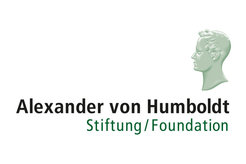Humboldt Research Fellowships for Max Planck Postdocs from Hamburg
Xinxin Cheng is a researcher at the Hamburg Centre for Ultrafast Imaging (CUI) and joined R. J. Dwayne Miller’s Atomically Resolved Dynamics group in summer 2015. During the next two years she will focus on exploring molecular structural dynamics, especially those related to charge transfer and photo isomerization, using time-resolved gas-phase electron diffraction.
Sérgio Domingos received his doctorate from the Universiteit van Amsterdam in 2013. In December 2014 he joined Melanie Schnell‘s research group Structure and Dynamics of Cold and Controlled Molecules as a postdoc. With the Humboldt Fellowship, his research plan is to employ high precision spectroscopy to reveal dynamic stereo-selectivity in chiral molecules. He will exploit the high resolution of broadband microwave spectroscopy and the chiral sensitivity of microwave three-wave mixing to study molecular systems with axial chirality. This is important because the ability to determine the handedness of chiral molecules is crucial in establishing how molecular structure and biological activity are related.
James McIver received a PhD in physics from Harvard University in 2014 working in Nuh Gedik’s research group at the Massachusetts Institute of Technology. In December 2014 he joined Andrea Cavalleri’s research group Quantum Condensed Matter Dynamics as a postdoc. The Humboldt Fellowship will support James' research plan on the ultrafast manipulation of topological order. This is important because it provides the foundation for the development of topological transistors that utilize switchable topological conduction channels and potentially other exotic phenomena for high-speed next-generation circuitry.

The Alexander von Humboldt Foundation provides its prestigious Research Fellowships to support promising young scientists with above average qualifications in their early career. The fellowships allow international scientists to carry out long-term research projects in Germany. Applicants are free in the choice of their topic of research and their academic host.
